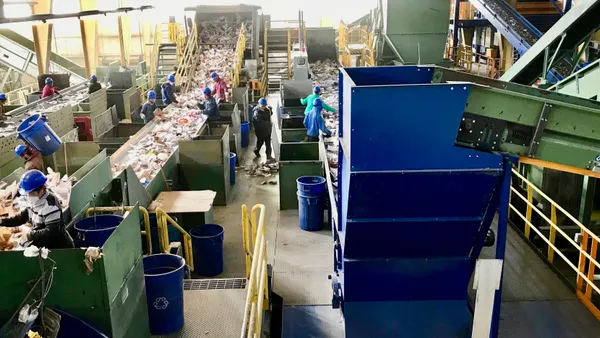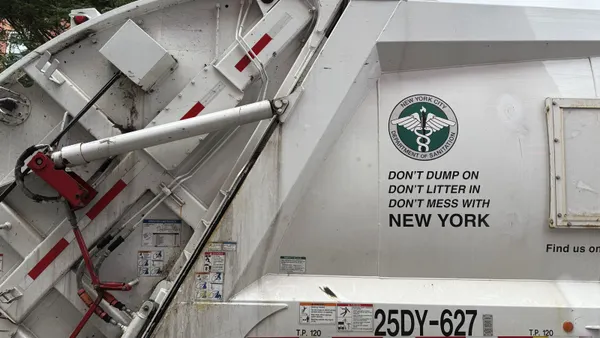Dive Brief:
- San Francisco Bay Coffee Co. announced Oct. 26 what it calls the first "No Waste" single-use coffee pod, which can be processed at industrial compost facilities. The company said its product will be available at Costco stores throughout the U.S.
- The pods, certified by the Biodegradable Products Institute, are made of "plant-based renewable resources" including vegetable oil and starches. The compostable mesh filter is made from food grade materials. The pods come in a multilayer compostable bag, which is sold in corrugated cardboard boxes. The products are not rated for backyard composting.
- John Rogers, San Francisco Bay Coffee Co.'s vice president of sales, said the company recognized the importance of making zero-waste products convenient for consumers. "If you have to go through multiple steps to separate materials in order to recycle a coffee pod, we know a lot of those will end up in the garbage," he said in a press release.
Dive Insight:
Between single-use coffee cups from retail locations and the increasingly-popular, single-serving coffee pods in homes worldwide, coffee consumption makes a notable contribution to local waste streams. In the U.K., for example, some 3 billion coffee cups are thrown away annually. Around 80% of those cups are thrown away at work, which is what led Veolia in June to target workplaces for coffee cup recycling.
San Francisco Bay Coffee Co.'s compostable pods aren't the first big move by a coffee manufacturer to become more sustainable. In May, for example, Nespresso launched a curbside collection pilot for its aluminum coffee pods in London — after facing public pressure. Keurig Green Mountain, manufacturer of the ubiquitous K-Cups, has ambitious plans to make its products entirely recyclable by 2020. This has involved new packaging, with extensive testing at material recovery facilities around the country, which will be debuted in Canada next year.
While the company's move to sell a compostable and recyclable product is meaningful — especially in an environment where firms are exploring packaging innovations to mitigate coffee waste — it may not offer a universal solution to coffee pod waste. Not every community has access to an industrial compost facility, like San Francisco Bay Coffee Co.'s packaging requires. To truly close the loop on coffee pods in communities without access to curbside or drop-off organics collection, manufacturers will also need to continue working on products that can be composted in backyards or mixed with single-stream recyclables.








